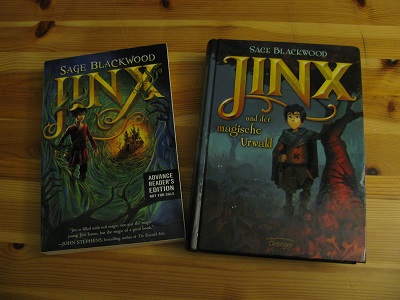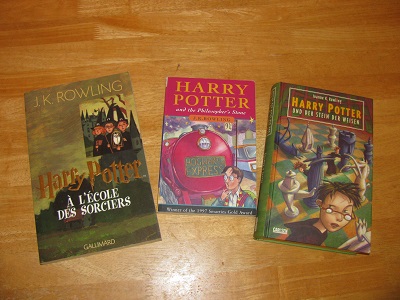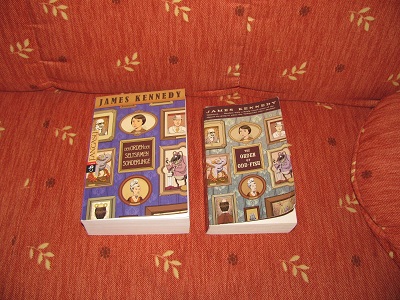Sonderling Sunday – Headlines!
It’s time for Sonderling Sunday! That time of the week when I play with language by looking at the German translation of children’s books. Sort of a Traveler’s Phrasebook for Very Silly People.
This week, I’m back to the book that inspired Sonderling Sunday, The Order of Odd-Fish, by James Kennedy, the most Sonder book of them all, Der Orden der seltsamen Sonderlinge.
This is my first week back after two and a half weeks of vacation on the west coast (which was great!), so once again I’ll have to keep it short. But there’s enough time for a little fun.
Last time I left off on page 234 in the English edition, Seite 295 auf Deutsch. I am in the middle of Chapter 18.
The first sentence I had to look up in German reveals no surprise I didn’t understand it:
Sir Alasdair übte oben auf seinem Urk-ack.
= “Sir Alasdair was practicing his urk-ack upstairs.”
“stopped hammering, drilling, and sawing” = aufhörten zu hämmern, zu bohren oder zu sägen
Don’t you want to know how to say this?
“the mellow tones of the urk-ack”
= die sanften Töne des Urk-ack
I still like long German words:
“pounded up and down”
= hinauf- und hinunterpolterten
“Inconvenience” = Ärgernis
This doesn’t sound like what it means:
“comfortable silence” = behagliches Schweigen
“often distracted” = häufig abgelenkt
“cot” = Pritsche
I’m not sure why this place-name was translated this way:
“Snoodsbottom” = Bilgental
“the important thing” = die Entscheidende
Here’s a good one!
“hopping mad” = fuchsteufelswild
“Girl Scout” = Pfadfinderin (“pathfinder girl”)
“brawl” = herumprügele
Another good phrase to know:
“That all sounds grand” = Das klingt alles ganz großartig
“bravely” = tapfer
“etiquette” = Verhaltensregeln (“behavior-rules”)
And I like how this sounds:
“Aunt Lily raised an eyebrow.”
= Tante Lily hob die Brauen.
And I have to list how the alliterative headlines were translated:
“ELDERLY ELDRITCH EXILES EXONERATED!
EXUBERANT EX-EXPATRIATES EXULT!”
= EXIL ENDLICH EXTERMINIERT!
VERGNÜGT VERBANNTE!
“MAGNANIMOUS MAYOR MAKES MERCIFUL MOTION
MANDATING MURDER MATTER MENDED!”
= BARMHERZIGER BÜRGERMEISTER BEENDET BANN
MORDVORWURF MAKULATUR
“STRIKE FORCE STEADFASTLY SCORNED SURRENDER TO
SILENT SISTERS, SUBSEQUENTLY SUFFERED SEVERE SANCTION,
SENTENCE SINCE SUSPENDED.”
= STREITMACHT VERHÖHNT STUMME SCHWESTERN
ANSCHLIESSEND ABER ABGEFAHRENER ÄRGER
SANKTIONEN SEITDEM SUSPENDIERT
(Not bad.)
That’s all I have time for tonight! But it’s good to be back! I am häufig abgelenkt, but die Entscheidende is to get back to it!









